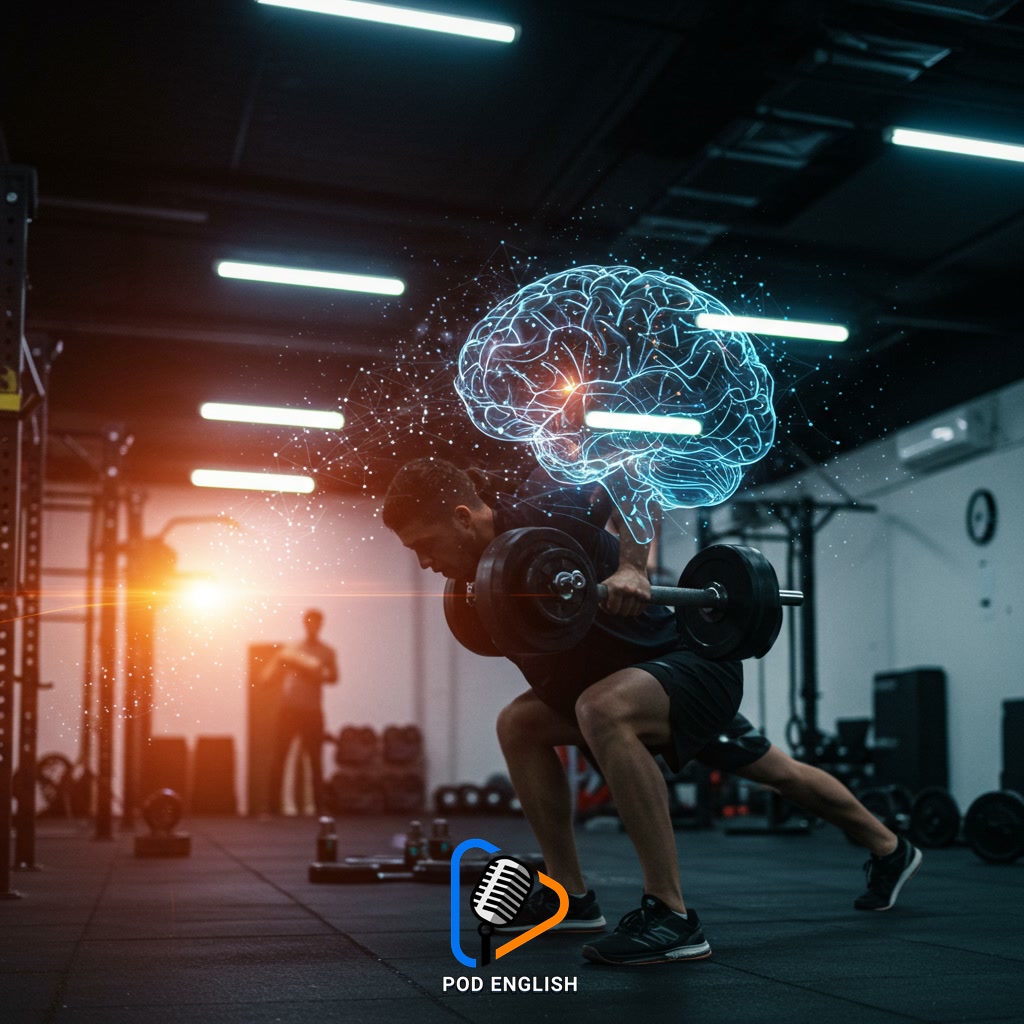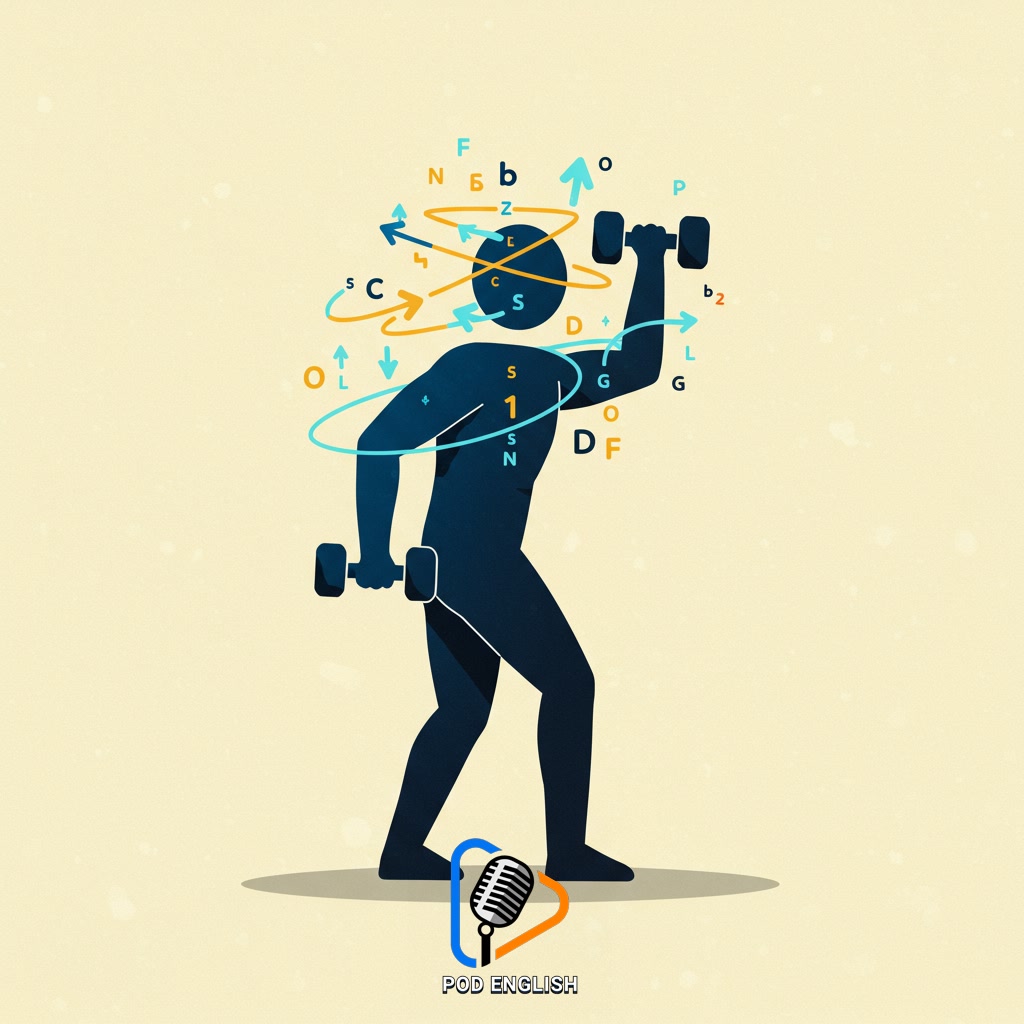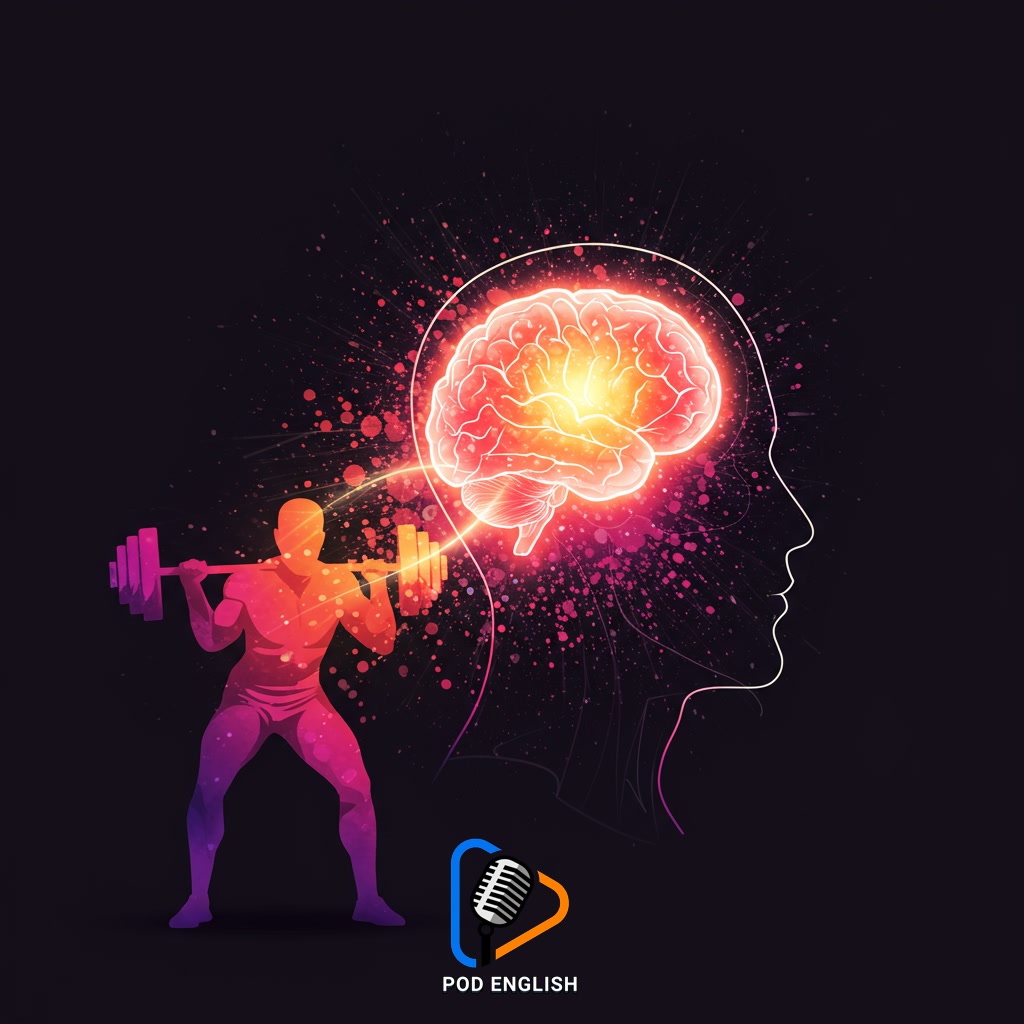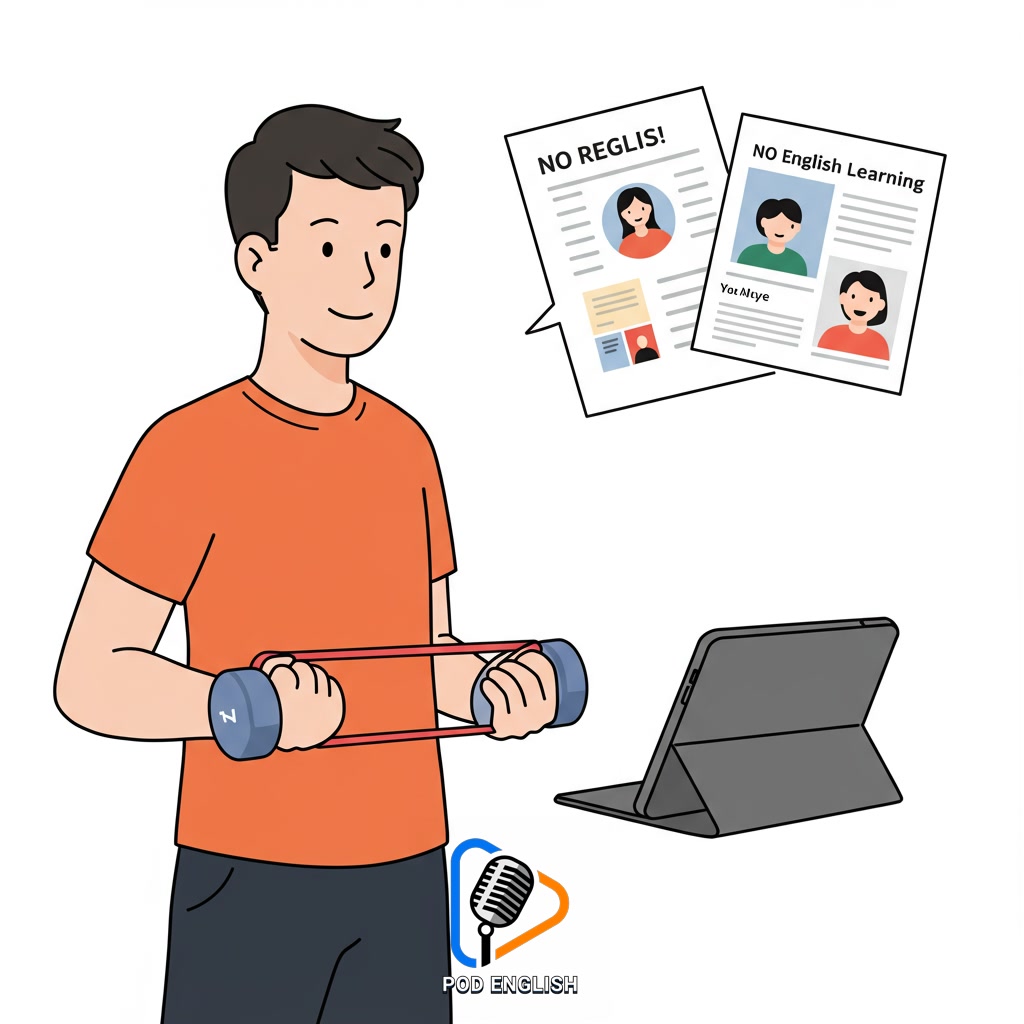Learn English
Strength Training Boosts Brain Power, Mental Health, and English Learning

Strength training offers significant benefits beyond physical fitness. It is shown to enhance cognitive functions and improve mental health. Furthermore, engaging in strength training can positively impact the process of learning English. This suggests a holistic approach where physical activity supports both psychological well-being and educational pursuits like language acquisition.
Table of Contents
- Section 1: Introduction: Unlocking Potential with Strength Training
- Section 2: The Cognitive Edge: How Strength Training Boosts Brain Power
- Section 3: Strengthening the Mind: Mental Health Benefits of Lifting
- Section 4: Bridging the Gap: From Physical Strength to Enhanced Learning Capacity
- Section 5: Applying the Benefits: Strength Training for Effective English Learning
- Section 6: Integrating Fitness and Study: Practical Tips for Learners
- Section 7: Conclusion: A Powerful Strategy for Holistic Growth and Learning
Section 1: Introduction: Unlocking Potential with Strength Training
Strength training is commonly associated with building muscle and improving physical appearance, but its benefits extend far beyond the gym. This document explores the remarkable ways engaging in regular strength exercises can profoundly impact your brain power and mental well-being. We will delve into the scientific evidence showing how lifting weights can enhance cognitive functions like memory, focus, and problem-solving. Furthermore, we will examine the positive effects on mental health, including reducing stress, anxiety, and symptoms of depression. By understanding this powerful connection between physical strength and mental capacity, we can unlock new potential, potentially even improving our ability to learn complex skills, such as mastering the English language.

Introduction: Unlocking Potential with Strength Training
Section 2: The Cognitive Edge: How Strength Training Boosts Brain Power
Strength training does more than just strengthen muscles; it significantly impacts brain health and function. When you lift weights or perform resistance exercises, your body increases blood flow, including to the brain. This enhanced circulation delivers more oxygen and nutrients essential for cognitive function. Furthermore, strength training stimulates the production of neurotrophic factors, such as BDNF (Brain-Derived Neurotrophic Factor), which are crucial for the growth, survival, and maintenance of brain cells. These biological changes contribute to improved memory, enhanced focus and attention span, better problem-solving abilities, and overall faster learning, providing a genuine “cognitive edge” in daily tasks and new challenges.

The Cognitive Edge: How Strength Training Boosts Brain Power
Section 3: Strengthening the Mind: Mental Health Benefits of Lifting
Beyond the physical gains, strength training profoundly benefits mental health. Engaging in resistance exercise stimulates the release of endorphins, natural mood elevators that effectively combat stress, anxiety, and symptoms of depression. The focus required during lifts and the sense of accomplishment from reaching new personal bests also contribute significantly to improved self-esteem and resilience. This enhanced psychological state – feeling less stressed, more confident, and mentally stronger – not only supports overall well-being but also creates a more positive and focused mindset, which can be highly beneficial for cognitive processes like learning.

Strengthening the Mind: Mental Health Benefits of Lifting
Section 4: Bridging the Gap: From Physical Strength to Enhanced Learning Capacity
Moving beyond mood enhancement, strength training acts as a powerful bridge connecting physical exertion to cognitive function. Regular resistance exercise significantly increases blood flow to the brain, delivering vital oxygen and nutrients. This improved circulation supports the growth of new brain cells and strengthens neural pathways, particularly in areas responsible for memory, attention, and executive functions. By boosting these core cognitive abilities, strength training creates a more fertile ground for learning. Enhanced focus and a sharper memory make it easier to absorb and retain new information, skills that are directly applicable and highly beneficial when tackling complex tasks like mastering English vocabulary, grammar, and comprehension.

Bridging the Gap: From Physical Strength to Enhanced Learning Capacity
Section 5: Applying the Benefits: Strength Training for Effective English Learning
Building on the cognitive benefits mentioned previously, such as enhanced blood flow to the brain, strength training directly supports English learning. Improved focus and attention span, outcomes of regular resistance exercise, are crucial for concentrating on lessons, understanding complex grammar, and absorbing new vocabulary. Furthermore, the stress reduction associated with physical activity can lower anxiety often faced by language learners, making it easier to practice speaking and engage with native speakers without fear of making mistakes. By incorporating strength training into your routine, you’re not just building muscle; you’re cultivating a sharper, more resilient mind, better equipped to tackle the challenges and enjoy the process of mastering English.

Applying the Benefits: Strength Training for Effective English Learning
Section 6: Integrating Fitness and Study: Practical Tips for Learners
To effectively integrate strength training into your English learning journey, consider practical scheduling strategies. Aim to incorporate short, consistent strength training sessions into your weekly routine, perhaps before or after dedicated study periods. Physical activity is known to increase alertness and cognitive function, potentially making your subsequent English study sessions more productive. You might also try combining activities, like listening to English podcasts or audiobooks while performing low-intensity exercises or during recovery periods. The key is finding a sustainable balance that allows you to benefit from the mental boost of exercise without overwhelming your schedule. Even modest physical activity contributes to improved focus and stress reduction, creating a more conducive environment for language acquisition.

Integrating Fitness and Study: Practical Tips for Learners
Section 7: Conclusion: A Powerful Strategy for Holistic Growth and Learning
In conclusion, strength training emerges as a powerful and accessible strategy for fostering holistic personal growth. Beyond its well-known physical advantages, consistent strength training significantly enhances cognitive function, leading to improved focus, memory, and problem-solving skills. It also serves as a potent tool for boosting mental health, reducing stress, and promoting emotional resilience. By strategically integrating strength training into your routine, as discussed in the previous section, you create a supportive ecosystem where physical vitality directly contributes to mental acuity and emotional well-being, ultimately accelerating your journey in areas like English language acquisition. Embracing this integrated approach unlocks a path not just to learning, but to thriving in all aspects of life.

Conclusion: A Powerful Strategy for Holistic Growth and Learning













